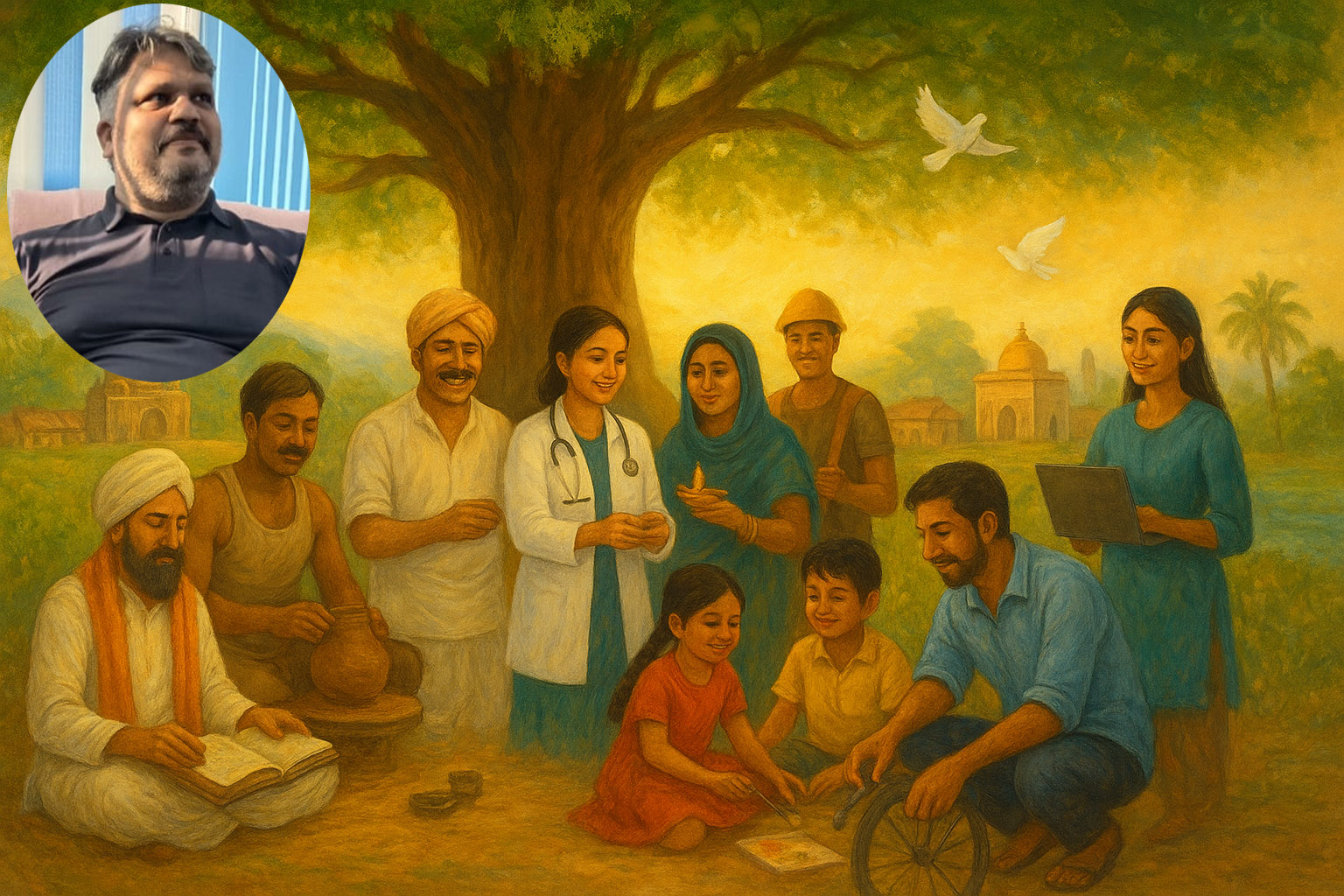Social Equality When and How
It has been 78 years since India gained independence. Thousands of people sacrificed their lives, endured imprisonment, and their families suffered immense hardships to secure the country's freedom. The India of their dreams was a nation where every individual would have equal rights, and all people could breathe freely in an environment free from fear, oppression, and exploitation. Social equality is the condition where every individual, regardless of caste discrimination, is granted equal rights, opportunities, and facilities. According to the Indian Constitution, all citizens are equal, and no discrimination can be made based on religion, caste, gender, region, or color. However, when these laws and regulations are observed at the ground level, the reality appears to be quite different.
It has been 78 years since India gained independence. Thousands of people sacrificed their lives, endured imprisonment, and their families suffered immense hardships to secure the country's freedom. The India of their dreams was a nation where every individual would have equal rights, and all people could breathe freely in an environment free from fear, oppression, and exploitation. Social equality is the condition where every individual, regardless of caste discrimination, is granted equal rights, opportunities, and facilities. According to the Indian Constitution, all citizens are equal, and no discrimination can be made based on religion, caste, gender, region, or color. However, when these laws and regulations are observed at the ground level, the reality appears to be quite different.
On October 7, the horrifying step taken by Haryana cadre IPS officer Y. Pooran Kumar to end his life shook everyone. In his suicide note, he mentioned being mentally harassed by some fellow officers. Today, due to improved educational facilities, children from every field and community are accessing quality higher education. Some youths from backward and Dalit communities, through their hard work, secure high-ranking positions in central and state governments. However, it is unfortunate that no matter how high a position they achieve, the label of being from a lower caste and caste-based discrimination continue to haunt them. Those who have served or are serving in government jobs cannot deny this bitter reality. Our country and society have progressed significantly, but the caste system has not yet been eradicated. In the fabric of society, no matter how talented or educated individuals from lower castes are, or how high a degree they obtain, or what prestigious position they hold, their caste and community are scrutinized first.
Speaking of ADGP Y. Pooran Kumar, he was a highly educated, capable officer posted at a very senior position. His own family and his in-laws' family are influential and consist of officers. If an IPS officer, distressed by the behavior of senior officers and colleagues, is driven to end his life, one can only imagine the plight of the poor and Dalit communities in the country. Mr. Pooran Kumar was around 52 years old at the time. At this age, a person develops resilience and focuses entirely on family responsibilities. Taking a step like suicide indicates that the individual feels defeated from all sides. Such news is deeply disheartening for the poorer sections of society.
Although the spread of education has brought new awareness to society, caste-based discrimination persists. Even today, an individual’s ability is overshadowed by their caste and regional background. Despite the government enacting strict laws like the Scheduled Castes and Scheduled Tribes (Prevention of Atrocities) Act, 1989, discrimination and atrocities show no signs of stopping. If an officer like Y. Pooran Kumar, holding such a high position, falls victim to contempt and social pain, what must be the condition of lower-grade employees and ordinary poor people? Who can they share their pain with? If some people in our country still believe in outdated ideologies of high and low, it is a sign of a diseased mentality.
Our Gurus, saints, and thinkers have always preached the message of equality in humanity. The Gurbani states, "Recognize the human race as one." All humans are made of the same flesh, bones, veins, and organs; the same red blood flows through their bodies. The notions of superior class, lower class, casteism, and untouchability are delusions of a particular group’s thinking. Today, other countries around the world are touching the heights of progress. If we discriminate against someone based on caste, there can be no act more reprehensible. When such cases come to light, no one is above the law, and sooner or later, justice is served. Exploiting someone under the delusion of belonging to a superior class may satisfy the ego of a few, but its consequences are often dire. So, let us follow the lines of Guru Ravidas Ji: "Eternal and everlasting is the divine kingdom. There is no second, only one." Let us contribute to creating a society where every individual can live with full dignity and respect.
-Davinder Kumar


